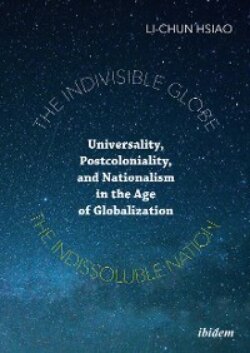Читать книгу The Indivisible Globe, the Indissoluble Nation - Li-Chun Hsiao - Страница 6
Who is Toussaint?
ОглавлениеThis, no doubt, is meant to be more of a rhetorical question. Rather than supplying a biographical account or historical documentation, I’d draw attention to the historical disjunction or discontinuities in historiography through which Toussaint is largely forgotten in the Western memory of colonial slavery—a forgetfulness that is the background against which this question, in its literal sense, has to be asked, especially for those stumbling into the field of postcolonialism: no, really . . . who is Toussaint?
Maybe it would be easier to reawaken the memory of Toussaint by citing a work of canonical Western literature which treats Toussaint as its subject matter. One such rare case can be found in William Wordsworth’s “To Toussaint L’Ouverture”:
Toussaint, the most unhappy man of men!
Whether the whistling Rustic tend his plough
Within thy hearing, or thy head be now
Pillowed in some deep dungeon’s earless den;—
O miserable chieftain! Yet die not; do thou
Wear rather in thy bonds a cheerful brow:
Though fallen thyself, never to rise again,
Live, and take comfort. Thou hast left behind
Powers that will work for thee; air, earth, and skies;
There is not a breathing of the common wind
That will forget thee; thou hast great allies;
Thy friends are exultations, agonies,
And love, and man’s unconquerable mind. (Poems 577)
Ironically, not only had Toussaint few allies, but he has been virtually forgotten, most conspicuously in Western colonial and abolitionist discourses (Hesse 164), before C. L. R. James’s ground-breaking book, The Black Jacobins, resuscitated it from obscurity and the brink of oblivion, stirring not only memories but also Third-World revolutions in the mid-twentieth century.3 In his interview with C. L. R. James, Stuart Hall says of his anecdote: “I once met a Haitian intellectual who told the story of how astonished people were in Haiti to discover that Black Jacobins was written first by a black man, secondly by a West Indian. Because of course it had come back to them through London, through Paris” (qtd. in Farred, “Mapping” 227). Perhaps thanks to Toussaint, James’s work suffered another round of neglect. For instance, Paul Gilroy, whose ground-breaking conception of the “Black Atlantic” as an alternative to Western modernity charts the trajectories of the lives and works of a few monumental black figures, curiously relegates both James and Toussaint to nearly total oblivion. Though Gilroy acknowledges the importance of James, himself a diasporic intellectual, and refers to others’ writings on him (see, for example, xi, 221), his virtual omission of Toussaint and the Haitian Revolution is quite puzzling: It is particularly so when one considers how the author attempts to, rightly, recuperate the significance of the memory of slavery and elegantly elevates it to the “slave sublime” (187–223); how the Haitian Revolution emerged as the first successful slave revolt in history;4 or the fact that Toussaint and the slaves, displaced by the Middle Passage and thrown into an unknown modern world, collectively constituted or participated in the prototypical diasporic experience, which Gilroy argues is the defining characteristic of the routed Black Atlantic (and we may add, of the “postcolonial condition”).
